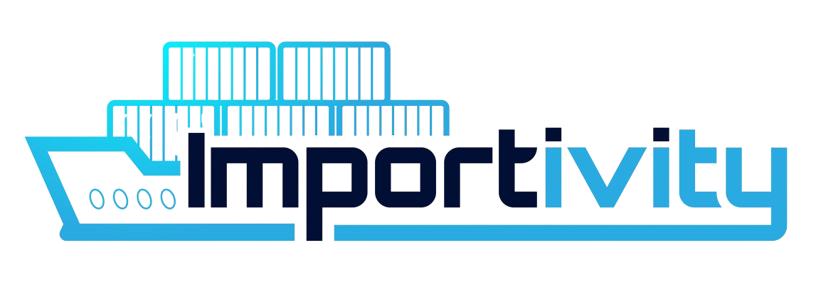Have you ever dreamt of sourcing unique products from overseas suppliers, but hesitated due to security concerns? You’re not alone. Making overseas payment to a supplier can be scary, especially for those unfamiliar with the risks. Navigating international transactions requires a cautious approach. Skipping important steps can cost you money, lead to legal trouble, and damage your business reputation.
This blog will show you what you need to do before paying for overseas supplies, so you can have a smooth and safe international trade experience.
Understanding the Risks of Paying Overseas Suppliers
International payments involve inherent risks compared to domestic transactions. Here are some key concerns to consider:
- Fraud: Watch out for fake suppliers, fake invoices, and phishing scams; they can steal your money!
- Currency Fluctuation: Unforeseen changes in exchange rates can significantly impact your bottom line.
- Compliance Issues: If you don’t follow trade laws, you risk heavy fines and legal problems.
Essential Checks Before Transferring Funds Internationally
Before committing to pay overseas suppliers, conduct thorough due diligence on the supplier:
- Verify Company Credentials: Research the supplier’s registration, licenses, and online presence. Check for negative reviews or complaints.
- Check References: Reach out to the supplier’s past clients and ask about their experience.
- Understand the Legal Framework: Pay attention to trade laws and how they affect payments in the supplier’s country.
Understanding Different Overseas Payment Needs
Paying overseas contractors, freelancers, or employees, requires different legal and financial considerations depending on their classification.
-
- Contractors and freelancers are usually independent workers. This means they work on their own and are not employees of your company.
- Employees have extra tax and labor laws to follow. This involves things like taxes and benefits that you need to handle for employees.
- Knowing how to pay each group differently is important for international payments. This ensures you comply with the rules and avoid problems.
Here’s a breakdown of the key considerations for each category:
How to Pay Overseas Contractors:
Contractors are typically self-employed individuals or entities engaged in specific projects or services.
-
- They pay for completed work, often through invoices.
- Contractors handle their own taxes. They report and pay what they owe.
- Popular methods for paying an overseas contractor include international wire transfers and online payment platforms.
How to Pay Freelancers Overseas:
Freelancers work on projects, like contractors, but their projects are often shorter. Keep the following in mind when paying overseas freelancers for a smooth experience.
-
- Platforms like Upwork or Fiverr often serve as intermediaries. They handle payments, and sometimes tax compliance.
- It’s important to check the platform’s terms and fees associated with international transactions.
How to Pay Overseas Employees:
Employees have a more formal, ongoing connection with the company. This means they must follow the local labor and tax laws of the country where they work. The following points might give you clarity in paying employees working abroad.
-
- Companies use payroll software or hire a PEO to handle employee taxes, benefits, and other HR paperwork.
- How employees get paid depends on the country’s rules. It might be through direct bank transfers or local payroll systems.
Key Considerations:
1. Tax Withholding:
Depending on the country and the nature of the work, tax withholding at the source might be necessary. Consulting a tax professional familiar with international employment regulations is highly recommended.
2. Social Security and Benefits:
Local social security contributions and employee benefits might apply, requiring additional compliance measures.
3. Currency Fluctuations:
Watch out for currency exchange rate fluctuations. They can affect how much money the company pays and how much the overseas worker receives.
Learn to understand these differences and use the right payment methods. This way, your overseas contractors, freelancers, and employees get paid smoothly and legally.
Choosing the Right Payment Methods for Global Trade
You can choose from several methods to pay overseas, but each has its own benefits and drawbacks. Here are a few Secure payment methods for international transactions:
- Letters of Credit (LCs): Offers a high level of security for both parties but involve complex procedures and fees.
- Escrow Services: Act as an impartial third-party, that holds onto the finances until both parties have met their responsibilities.
- International Wire Transfers: This is a faster option, but it has higher fees and is risky to pay upfront.
- PayPal: This is widely used for smaller payments, but fees can be high.
- Fintech Solutions: Platforms like Wise offer great rates, low costs, and strong security features.
Choosing the best method depends on the recipient type and transaction size.
Consult the Experts Before Making Large Payments
Consulting with legal and financial professionals experienced in international trade is crucial:
Legal Expertise: Lawyers can help with:
-
- Contracts
- Trade rules
- Solving disputes.
Financial Expertise: Financial advisors can offer tips on:
-
- Currency exchange strategies.
- How to manage risks.
- Secure payment options.
Technological Solutions to Secure Your Transactions
Technological advancements offer additional security measures for international payments:
- Blockchain Technology: This keeps track of transactions in a clear and secure way, making them trustworthy and safe.
- Secure Payment Platforms: Encryption and fraud detection systems lock down your financial information.
Warning Signs in Overseas Transactions
Be wary of these red flags that might indicate potential fraud or unreliable suppliers:
- Unrealistic Offers: Prices lower than market value could be a sign of a scam.
- High-Pressure Tactics: Watch out if a supplier pressures you to close a deal quickly or demands immediate payment.
- Poor Communication: If you can’t reach the supplier or their information is unclear, be cautious.
Partner with Importivity for Streamlined International Transactions
International payments can be tricky, especially for businesses new to global trade. Import sourcing agents like Importivity can make things easier and add extra security.
Importivity helps businesses find reliable manufacturers in China. They offer a full range of services to make importing easier and reduce risks involved in international business. Here’s how Importivity can add value to your international trade endeavors:
- Product Sourcing: Importivity connects you with reliable Chinese factories to fit your needs.
- Quality Control: Regular inspections guarantee that your products meet the agreed-upon quality standards.
- Logistics Management: Importivity handles all the logistics, which includes customs and international shipping. This allows for a smooth and efficient delivery of your products.
Importivity makes international trade easy. Their focus on quality control, secure transactions, and efficient delivery ensures a smooth import process.
Takeaways
Making payments for overseas supplies doesn’t have to be a gamble. With the help of these key checks and strategies, you can rest easy. This greatly reduces risks and ensures safe international trade. If you need help managing overseas workers or streamlining imports? Consider Partnering with Importivity! Our services simplify international payments, ensure compliance, and reduce risks.
Frequently Asked Questions (FAQs)
1. What services does Importivity offer to help with safe international trade?
Importivity simplifies importing and keeps your international payments safe. These include: product sourcing, quality control, and logistics management.
2. How does Importivity help me avoid fraud when sourcing from overseas suppliers?
Our team has extensive experience in identifying and vetting reliable manufacturers in China, Japan, Taiwan, & Hong Kong. We thoroughly vet potential suppliers by inspecting their factories and contacting references. This reduces the risk of fraud.
3. What are the benefits of using Importivity’s services?
Partner with Importivity to enjoy: reduced risk, quality assurance, a streamlined process, cost savings, and peace of mind for all your international transactions.
4. How does Importivity simplify the import process?
Leave the importing hassles to us! We find products, ensure quality, manage shipping, and handle customs. This frees you up to focus on your core business, leaving the international trade complexities to us.
5. What are the costs associated with using Importivity’s services?
Importivity offers flexible pricing plans to suit your specific needs. For a customized quotation depending on the services you need, contact us today.




